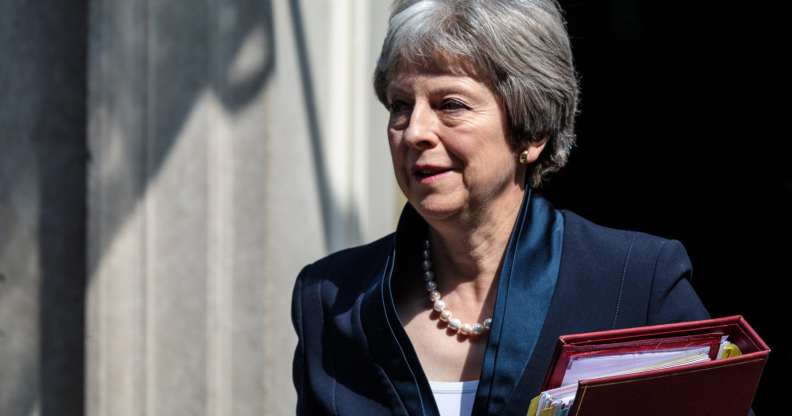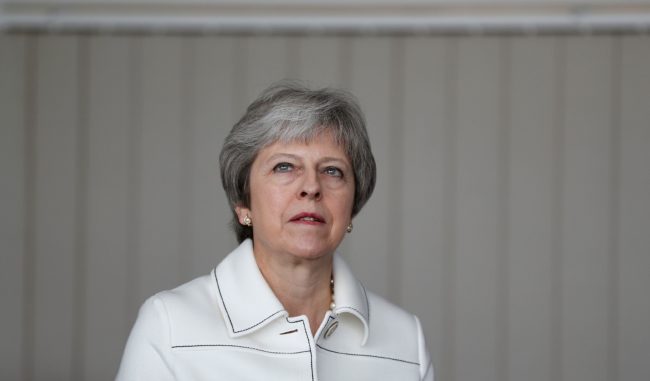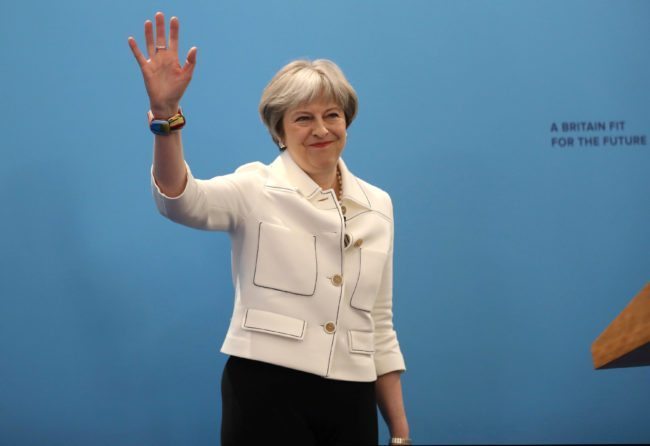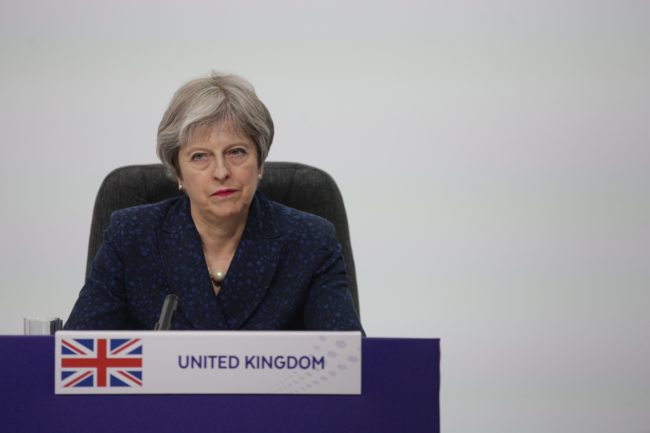Theresa May says transgender people ‘deserve respect’ and reaffirms commitment to gender recognition review

British Prime Minister Theresa May (Jack Taylor/Getty)
Prime Minister Theresa May has reaffirmed her commitments to standing up for transgender rights.
The PM made headlines in October 2017 at the PinkNews Awards when she vowed to stand up for transgender people, giving her support to a review of the Gender Recognition Act.
She said at the PinkNews Awards: “We’ve set out plans to reform the Gender Recognition Act, streamlining and demedicalising the process for changing gender, because being trans is not an illness and it shouldn’t be treated as such.”
Writing in June’s Gay Times magazine for Pride Month, May reaffirmed her commitment to progress on the issue – despite a strong political backlash and negative media coverage.

Britain’s Prime Minister Theresa May (DARREN STAPLES/AFP/Getty)
She said: “That is why we will also publish an LGBT Action Plan this summer. It will set out concrete steps the Government will take to improve lives for LGBT people in this country and address some of the injustices the community has faced.
“We’ve also engaged with experts to understand better the limitations of the current system of gender recognition and will soon publish a public consultation on how we best reform the process.
“Trans people still face indignities and prejudice when they deserve understanding and respect.
“There’s lots to do – but the UK can be proud that we are a world leader in advancing LGBT rights.”

(Simon Dawson – WPA Pool/Getty)
The consultation on gender recognition reform was expected to launch last year but has been stalled for months amid negative media coverage.
The government recently said it would be published before Parliament’s summer recess in July.
May also promised to publish results from the UK government’s recent LGBT survey.
The PM wrote: “Last summer I announced a survey of LGBT people in Britain. The response was phenomenal with over 100,000 people replying, making it the largest survey of LGBT people anywhere in the world.
“One answer that stood out to me was how many LGBT people said they avoided being open about their sexual orientation or gender identity in public, or with their own family and friends.
“I want to help make us a country where no one feels the need to hide who they are or who they love.
“We will publish the full results soon. And while these findings might not come as news to many in the community, they do allow government to focus on what more it needs to do to tackle discrimination in every walk of life.
“Whether that is at home, in the playground, in the workplace, or in public.”

Britain’s Prime Minister Theresa May (DANIEL LEAL-OLIVAS/AFP/Getty)
The Prime Minister recently expressed her ‘deep regret’ for Colonial-era anti-gay laws.
Speaking at the Commonwealth Heads of Government Meeting (CHOGM) meeting in London in April, May responded to calls from LGBT activists for an apology over the UK’s legacy on the issue.
She said: “Across the world, discriminatory laws made many years ago continue to affect the lives of many people, criminalising same sex relations and failing to protect women and girls.
“I am all too aware that these laws were often put in place by my own country. They were wrong then and they are wrong now.
“As the United Kingdom’s Prime Minister, I deeply regret the fact that such laws were introduced, and the legacy of discrimination, violence and even death that persists today.”

